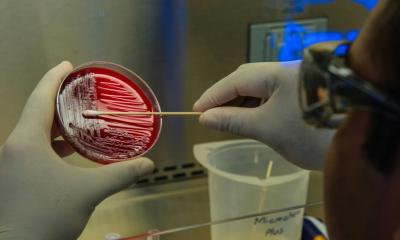Diabetes and Risk of Death in Cancer Patients
Dot McSherry, i.t. Communications, reports
Does diabetes further increase the risk of death in patients diagnosed with cancer? A team at the Johns Hopkins School of Medicine in Baltimore, Maryland, has discovered something very sobering: Cancer patients are 51% to 85% more likely to die after surgical resection if they had pre-existing diabetes.
Hsin-Chieh Jessica Yeh PhD, Dr Yeh, an assistant professor of general internal medicine and epidemiology, was principal investigator of a meta-analysis on this subject. She and a team of professors identified over 8,800 articles published in peer review journals evaluating the effect of diabetes on any prognostic outcome in cancer patients. 20 of these were the most relevant to postoperative mortality, and an analysis of what they reported was published in Diabetes Care, the official journal of the American Diabetes Association (April 2010).
The studies evaluated the effect of pre-existing diabetes in patients with colon or colorectal cancer, oesophageal, lung, pancreatic, and prostate cancers, and were conducted in Asia, Europe, and the USA. They ranged in size from evaluating 70 patients to more than 32,500 patients. The percentage of patients with diabetes ranged from 1% to 42%.
To the surprise of the research team, there was not enough data published on postoperative mortality after surgery for breast cancer and endometrial cancer to analyse the risk of diabetic and non-diabetic women.
Today, an estimated 7% of all adults over age 20 and living in industrialised economies have diabetes. However, an estimated 8%-18% of individuals who are diagnosed with cancer are also diabetic. Dr Yeh explained that individuals with diabetes have a higher risk of developing cancers of the breast, colorectal, endometrium, liver and pancreas. People who are obese and sedentary are at risk of developing type 2 diabetes and cancer.
‘Because diabetes can lead to infections, acute cardiovascular events, and metabolic changes, cancer patients may also be at greater risk of dying after they have had surgery. It is well known that elevated blood sugar increases the risk of complications from any type of surgery,’ Dr Yeh pointed out.
The researchers speculated several factors relating to the fact that pre-existing diabetes might specifically influence postoperative mortality risk after cancer surgery. One is series infection or sepsis. Peri-operative hyperglycaemia predicts in-hospital infection. Peripheral arterial disease and bladder dysfunction also represent chronic predisposing factors. Myocardial infarction is another. ‘Diabetes is a chronic risk factor for atherosclerosis in multiple vascular beds, including coronary arteries. Add the short term effects of hyperglycaemia on platelet function and thrombotic tendency, perioperative renal failure, and chronic kidney disease, all common to diabetic patients, all which may aggravate cardiovascular risk,’ Dr Yeh explained.
Her advice: Oncologists, surgeons, and cancer patients should be aware of the excess post-operative mortality risk related to diabetes when considering treatment options. She suggested that more emphasis be placed on peri-operative diabetes care because this treatment might be helpful. However, whether better peri-operative glucose control would reduce the mortality risk is questionable, because intensive insulin therapy has not provided consistent benefits in clinical trials of patients in intensive care units.
Dr Yeh will discuss diabetes and cancer death at the EASD annual meeting (20-24 September 2010, StockholmMässan conference centre, Sweden).
07.09.2010





